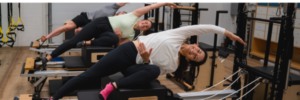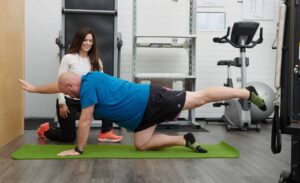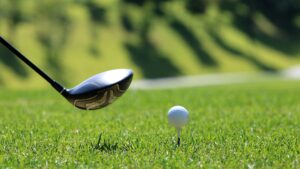As a Kinesiologist, my specialty over the past 12 years has revolved around teaching people how to recover from injury, improve function and get their life back to normal. Becoming injured is not something that we plan for and usually happens at inconvenient times. There is never a “good time” to get injured. Injuries can range from traumatic incidents such as car accidents, falls, impacts during sports, or can occur slowly over time from repetitive movements that contribute to the body breaking down.
It is important to note that our lifestyle can positively or negatively affect how quickly we heal. Here are some factors to take into consideration regardless of your injury.
Sleep
Getting adequate and quality sleep is crucial to allowing tissues to heal and our body to recover. Soft tissues do the majority of repairing when we are in dreamland. Try to aim for a minimum of 7 hours of sleep per night. Keep in mind that you may require more sleep when recovering. For more tips developing a healthy sleep routine visit: www.sleepfoundation.org/articles/healthy-sleep-tips
Nutrition
Some general tips for nutrition when injured include:
- Eat more anti-inflammatory foods such as healthy fats, lean proteins and high-quality carbohydrates
- Eat less inflammatory foods such as sugar and processed foods
For more specific information check out this infographic from our friends at Precision Nutrition: www.precisionnutrition.com/nutrition-for-injury-recovery
Exercise
Make sure you are assessed by a movement professional, such as a Kinesiologist, to receive exercises tailored to your body and not necessarily just an injury. Often with repetitive strain type injuries where no obvious trauma occurred, muscle imbalances can contribute to the injury developing. Therefore, having a full postural and movement pattern assessment can help with restoring balance and function. We carry a number of exercise equipment perfect to use at home!
That being said, when you are injured, keep in mind that exercise can be still possible. For example, if you have experienced an injury to your ankle, you could possibly still use a rowing machine, bike, or swim, as well as circuit training. Or, if you injured your upper body such as the shoulder, you may still be able to walk and do lower body exercises. You will feel better if you continue to incorporate exercise into your routine when injured. Just be sure to do it intelligently. If you are unsure, consult with your treating health care practitioner for recommendations.
 Self-Care
Self-Care
Find the self-care strategy that works the best for you. Whether that is getting regular massages, floating, hot baths with Epsom salts, meditation, journaling, or all of the above. Partake in self-care regularly whether you are injured or not. To browse our selection of massage rollers and other self-care products click here.
Stress
Environmental, emotional, mental, and physical stress are all factors that affect our bodies and state of mind. Stress stimulates our sympathetic nervous system which increases cortisol and other unhealthy hormones. This can feed into the inflammatory cycle and can slow down the healing process. Try to reduce the stressors in your life that could affect your health and well-being. Also consider taking micro-vacations (getting out of town for the weekend or long weekend) in order to maintain and restore balance.
Support
It is always important to have a supportive environment when injured. Support from family, friends, and/or co-workers can help reduce stress and allow you to focus on recovery. Find the support system that works best for you and when in doubt, do not be afraid to ask for help.
Mindset
Having a positive attitude and outlook on your situation can make all the difference in the speed of recovery. We have seen many people whose negative attitude feeds into their pain and magnifies it. On the flip side we have also seen people with the best attitude overcome the worst injuries and situations. Attitude IS everything!
Proper Progression
It is imperative during an injury to have a plan, stick to the plan, and progress exercise intelligently. This comes from being self-aware and working with a knowledgeable healthcare professional.
Time
They say time heals all wounds. Patience is key to allow your body to become strong and able to tackle whatever you have to throw at it. The body requires time to heal and each injury will vary according to healing time. Being physically fit and active prior to an injury is extremely helpful to recovering at a quicker rate as well.
Recovery Aids
Consider tools that can support the injured area. Compression products and braces can assist with reducing compensations as well as reducing inflammation. Compression socks and braces can help reduce swelling and increase proprioception which allows your brain to stay connected to the injured muscles (click here to browse our selection). This makes the strengthening process easier for your brain. In some scenarios (major sprains, tears, fractures), limiting motion and protecting joints is key to healing properly. Make sure you see a health care practitioner that can properly diagnose your injury and advice you accordingly. Professionals such as Physiotherapists can diagnose injuries and can be a vital part of the recovery team.
.jpg)
Injuries are not something that we plan for and are never welcome. However, if you are faced with an injury big or small, keep these points in mind and you will heal up in no time. Our healthcare team at Kelowna Kinesiology and Orthoquest are here to ensure you move well, be well. Contact us today and let us help you Move Well, Be Well.
Written by Lise Dallien MacMillan, BSc. Kin, C. Ped (c)
Canadian Certified Pedorthist & Practicing Kinesiologist



